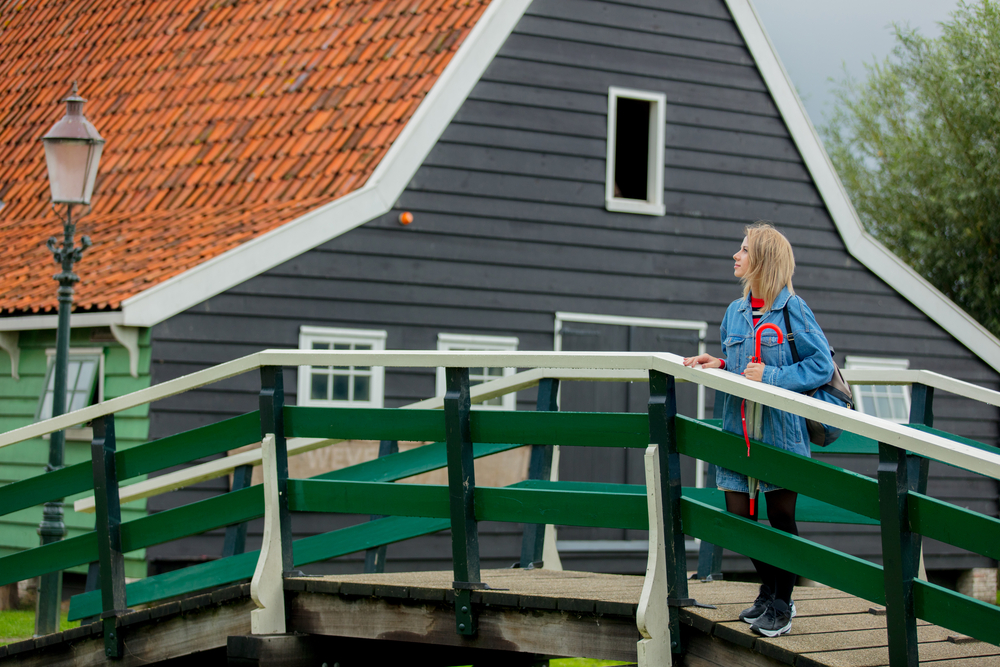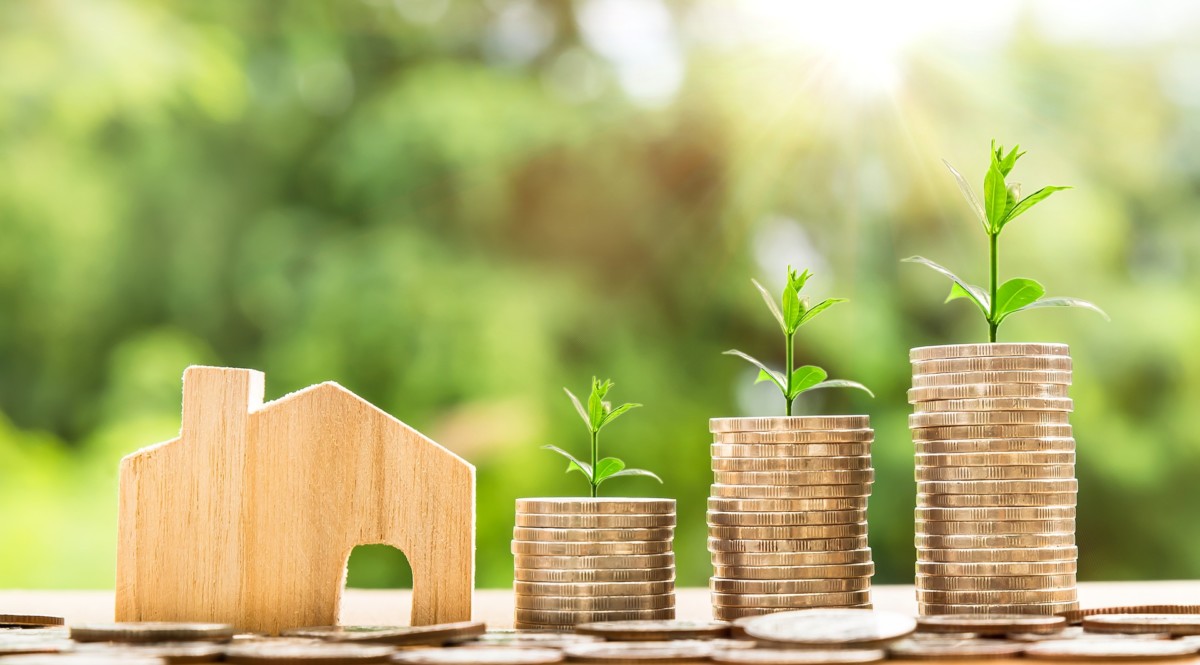As an international, buying a house in a different country can be a daunting prospect. Let’s lay out the most important steps that you should take if you want to buy a house in the Netherlands.
In this guide to buying a house in Holland as an international, we have broken down the process into eight steps:
1. Figure out how much you need to borrow
With some basic salary and work contract information, you can get a quick estimate online of your maximum borrowing capability and your expected monthly mortgage repayments. Remember you’ll need an extra 5 to 10% of the purchase price to pay all the fees and taxes.
Check out our step-by-step guide in securing a mortgage and buying a house in the Netherlands where we take you by your hand and see you through it all.
2. Find out what’s on the market — get yourself on Funda
Funda is one of the first places that anyone looks when they are on the hunt for a home. The majority of properties that come up for sale in the Netherlands are uploaded to the site and you can easily register for free at www.funda.nl.

Once you have joined, you can set your preferences in your online account according to exactly what you are looking for. Check-in regularly and you will quickly become aware of suitable new properties coming onto the market.
3. Get yourself a ‘makelaar’ (realtor)
A makelaar, or realtor as we say in English, will help you to either buy or sell a home. When you’re looking to buy, a makelaar can be extremely helpful. Not only will they use their expertise to protect you from an increasingly cut-throat housing market, they will also carry out a lot of the heavy work involved in buying a house in the Netherlands.
They will begin by curating a buyers profile for you based on your specific circumstances and expectations. Using this, they will find the perfect property for you — but we’re getting ahead of ourselves.
3. Attend a viewing
Realtor or no realtor, the next step is to find a viewing. You can do this yourself by sending a message to listed properties on Funda. However, you may be at a slight disadvantage when compared to house hunters who have a makelaar on their side.
This is because a realtor will find you viewings for properties before they even end up on Funda. Yep, that’s right, realtors can give you access to properties before they hit the public market — a huge advantage in the current Dutch housing climate.
4. Find out how much you should bid
This is probably the single most difficult and most important part of the whole process. Unless you’ve got some great hacking skills, you won’t know the details of the other offers from your competitors. You may be asked to give your initial bid, which should be proportionately lower than your final offer, or you may be asked to give your final offer in an auction-style contest. You are playing around with numbers that equate to months or years’ worth of salary —tricky stuff!
You can try to make your own best estimate of the value of the house, which is primarily determined by the sale price of other houses in the same area. You can do this by either:
- Contacting the Kadaster. You can use this site to receive information by telephone, email or SMS about the sale prices of all properties in the Netherlands. This can be related to a specific address or a post code area.
- Use services available on Vereniging Eigen Huis such as “wat is dat huis waard?” which will attempt to calculate a reasonable property valuation based on recent transactions in the same area.

Once you have seen the house a few times, and have an estimate of the market value, you should also judge the value of the house to you. This is the true value and only you are the real expert.
That being said, you can also turn to an actual expert. if you do opt for a realtor they can offer you a stronger position when it comes to determining and negotiating the amount you should bid. Not only do they have knowledge of how much similar properties are sold for, they also have insight into what happens on the side of the seller — a big plus when you’re looking to impress them (without getting swindled.)
5. Time to call a surveyor
Once your offer has been accepted — congratulations! The first thing you need to do is conduct a technical evaluation of the property to verify that the house is not about to collapse. In the Netherlands this is called a bouwkundige keuring. A surveyor will come to the property to ensure that everything is technically and structurally sound before you dole out your cash.
6. Find a Notaris to handle the paperwork
A notaris or notary will act as the legal mitigator between you and the seller. They will draw up the relevant legal documents and make sure that everyone crosses all their T’s and dots the I’s.
If you were thinking of buying a house without a notary, think again. In the Netherlands, this is a compulsory step in the process of buying a home.
You do have some choice however when it comes to choosing your notary. You may make this decision based on the specific requirements of the property you’re buying, or more simply — the fees. Notaris fees can vary between about €1000 and €2500, (ouch we know but try to remember that they are the guardians of your legal rights.)
6. Finding a mortgage lender
So now you are ready to sell your soul to the bank — we mean, take out a mortgage. Figuring out what you want in a mortgage can lead you naturally to the right lender. Ask yourself the following questions:
- How many years fixed interest rate would I like?
- Do I want to be able to pay off large amounts of my mortgage without getting fined?
- Can I get a cheaper interest rate if I bring a deposit?
- Does my new house qualify for National Hypotheek Garantie?

Make a list of various possible lending organisations, then choose a few from that list and organise some meetings. You should be able to have an introductory chat for free. The lender will charge you a mortgage processing fee, perhaps including some ‘advice’ for setting up the mortgage. This can vary between about €1500 and €3000.
Tip: we also have some advice on securing a mortgage in the Netherlands, for free.
7. Transfer the funds
Once you have decided what your mortgage is going to look like and how much you are going to pay, it’s time to transfer your money. In the Netherlands, you actually don’t transfer your money to either the bank or the seller — instead, it goes to the notary.
Both you and your mortgage lender will transfer your contribution to the purchase of the property to the notary. They will then give you a notarial statement containing all the information about the transfer including the relevant costs (taxes etc) and the money owed. Once the money needed for the sale is in the notary’s account, they will deduct relevant costs (more on these below) and transfer the settled amount to the seller on your behalf.
8. Pay the little fees
The worst part of buying a house in the Netherlands is over. However, now you need to gather all the financial muscle you can accumulate so you can pay all those damn fees and taxes! In addition to those already mentioned, you may have to consider the following:
- Overdrachtsbelasting (Transfer Tax): 2% of purchase price (Not applicable for new houses) (As of January 2021, first-time buyers between 18-35 will not have to pay this unless the house exceeds 400,000.)
- NHG aanvraag (NHG application): 1% of purchase price
- Taxatie costs (property valuation): €300 – €500
- Bouwkundige Keuring (technical evaluation): €300 – €500
- Get that tax back!
Thankfully, in the Netherlands, the interest you pay on a mortgage is tax-deductible, which means every month you can get a nice chunk of dosh back a couple of weeks after you’ve made the monthly payment (this is called the hypotheekrenteaftrek, one of the best words to set up in Dutch Wordfeud).
In addition, you can claim back tax on what you paid to the bank, the notaris, the taxatie and the request for the NHG. Get that tax back and use the extra funds to pimp up your new pad!
9. Relax and celebrate
Now you’ve really got the ball rolling! Go and take a seat on the terrasje, order a biertje and some bitterballen while you fantasise about your future life in your wonderful new Dutch palace.

Happy house hunting! Tell us about your experience in the comments below.
Feature Image: rognar/Depositphotos
Editor’s Note: This article was originally published in April, 2015, and was fully updated in July, 2021 for your reading pleasure.
[…] and deduct all of that interest). The Dutch word for this fiscal wonder of the world is ‘hypotheekrenteaftrek‘, making it also a killer word for Dutch Scrabble. In addition, you can claim back tax on […]
After coming back to the Netherlands after a 2-year span in Germany, I would suggest changing the order of steps. As soon as you start bidding, make sure your bank knows and you start the paperwork there,
It took my bank 2 months to figure out that they couldn’t help me, since a German contract was too scary for them (my new contract in NL starts 1 month after I move because I dislike 600+km comutes). We managed via a second bank, but they also did not manage in the ‘normal’ 6 week period, because they are too busy to keep up a decent service level. So go on time. They all want the same paperwork more or less, so the worst that can happen is your bid gets reject (sucks), but you can still use most of the paperwork of your contract and tax statements for the next time round.
Do you seek urgent loan today , loan to start up business, Debt loan Buy a car or a house If yes worry no more As it may interest you,we offer all kinds of loans to any part of the world interested person should contact me via email: (mi********************@ho*****.com)
Attention.
Do you need Urgent loan? We give out loan to interested individuals who are seeking loan with good faith and with the interest rate of 3%. Are you seriously in need of an urgent loan? then you are at the right place. We give out business loan, personal loan, Xmas loan, and so on. Contact us for your loan request to meet your demand and set out from financial problem. contact us today via email: ru**************@gm***.com
Thanks as we await your response.
Russell Credit Home.
Do you need a loan to start a business? Or do you need a loan to clear up your bills.
We give loan with 2% interest rate.
Contact Us: st***********@gm***.com
[…] A home mortgage interest deduction allows taxpayers who own their homes to reduce their taxable income by the amount of interest paid on the loan. For decades, the deduction (in fact a subsidy on housing ownership) was unacceptable in politics: only few parties dared to include the ‘h-word’ in their program. Many reasons for its abolishment have been identified, e.g. creating house price inflation, limiting government earnings in times of economic downturn, and benefiting high-income individuals (over 68,ooo€) more disproportionally. […]
Thank you for sharing your tips! It is a bit of a struggle to buy a house in the Netherlands in some areas as Amsterdam. Make sure you are prepared and know what your possibilities are.
[…] People who bought their homes in 2000 did best in the profit department when selling their place this year – half the homes bought in 2000 sold at a profit of at least 40 percent. The worst year of purchase is 2008. About half of the homes purchased in 2008 were sold at a profit this year. […]
[…] you been searching to find that perfect house to live in but haven’t been lucky so far? We know the struggle. Luckily the people at funda.nl have decided to help those in need by putting together some of […]
[…] today, you will have to use more of your own money to buy a house in the Netherlands. If in 2017 you could borrow 101 percent of the value of the home, in 2018 this would drop to 100 […]
[…] The waitinglist for social housing in Amsterdam has you hanging on in there for around fifteen years before you even get a look in, and rental prices everywhere bar a few unfashionable areas are through the roof in comparison with other cities. For the person willing to wait however, there are still opportunities; you just need to wait it out till the right place comes along. Still, expect less for your money than elsewhere. The same applies if you are looking to buy a house in the Netherlands. […]
[…] your mortgage provider, if you own a house and are leaving the Netherlands (this needs to be done […]
[…] you’re planning to buy a house in the Netherlands, then it might be good to know if that is actually possible at all. And often more is possible than […]
[…] you’re planning to buy a house in the Netherlands, then it might be good to know if that is actually possible at all. And often, more is possible […]
Great, the nice houses there can be very little time between properties coming on the market and getting sold.
“Making a bid” I have watched many time the GIF image..and still feel funny. Thanks for interesting article…It really make my day.
Thanks for the tips. I liked the article very much. You have answered many of my questions.
According to reports, the prices of houses for sale in Netherland is rising for last 5 years. It is not uncommon, but judging the reduction of sale in real estate in other region makes its somehow odd. I think it might be related to bidding polices and high demands. Those who are interested can check out top homes for sale in Waldorf, Maryland.
This is exactly what I was looking for. Thanks for sharing this great article!
I am looking forward to make the foreign investments and have also shortlisted some of the places which I am interested in. Netherlands is one among them and I am glad I came across this article at the very right time. This will surely help!!